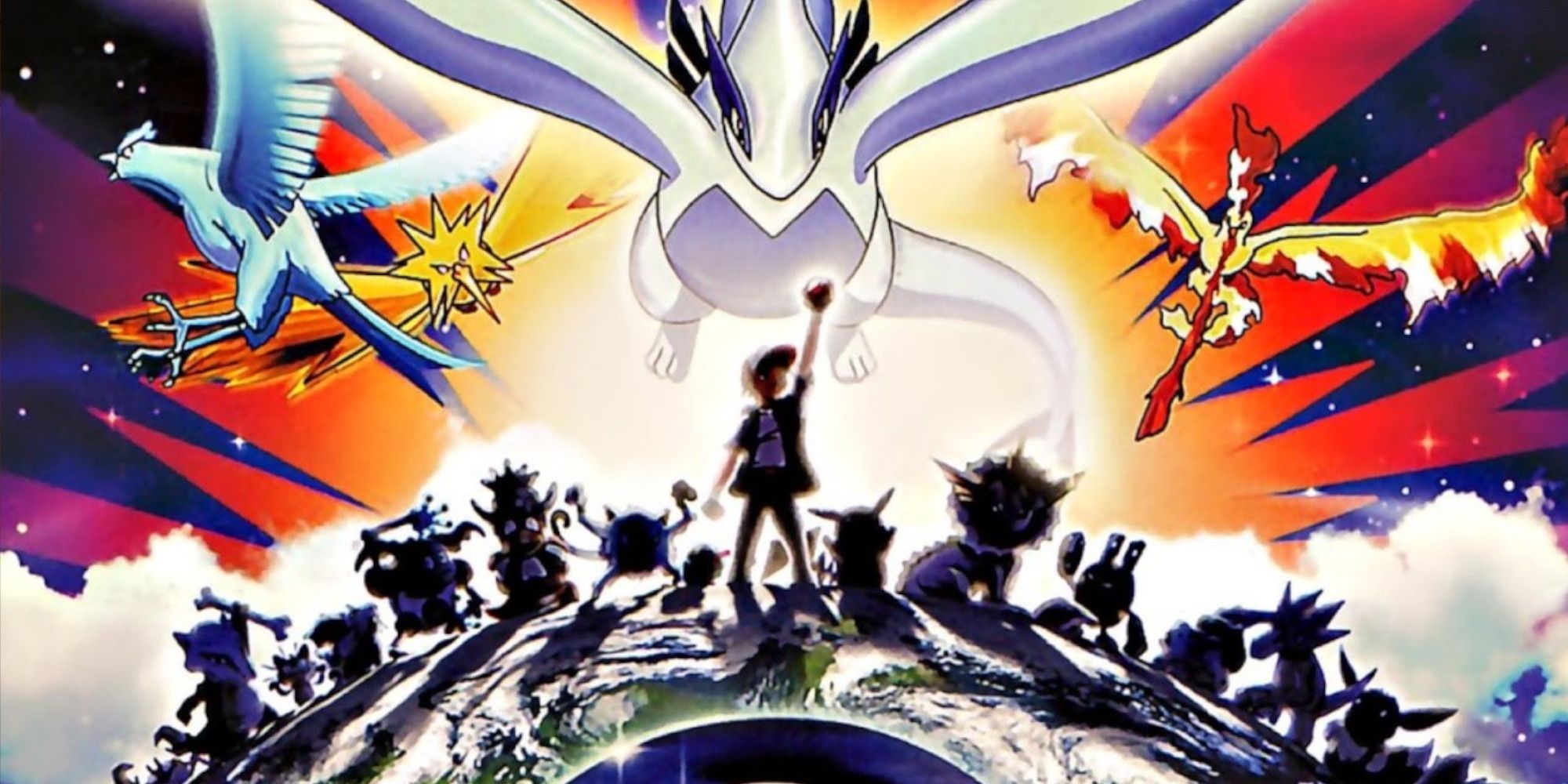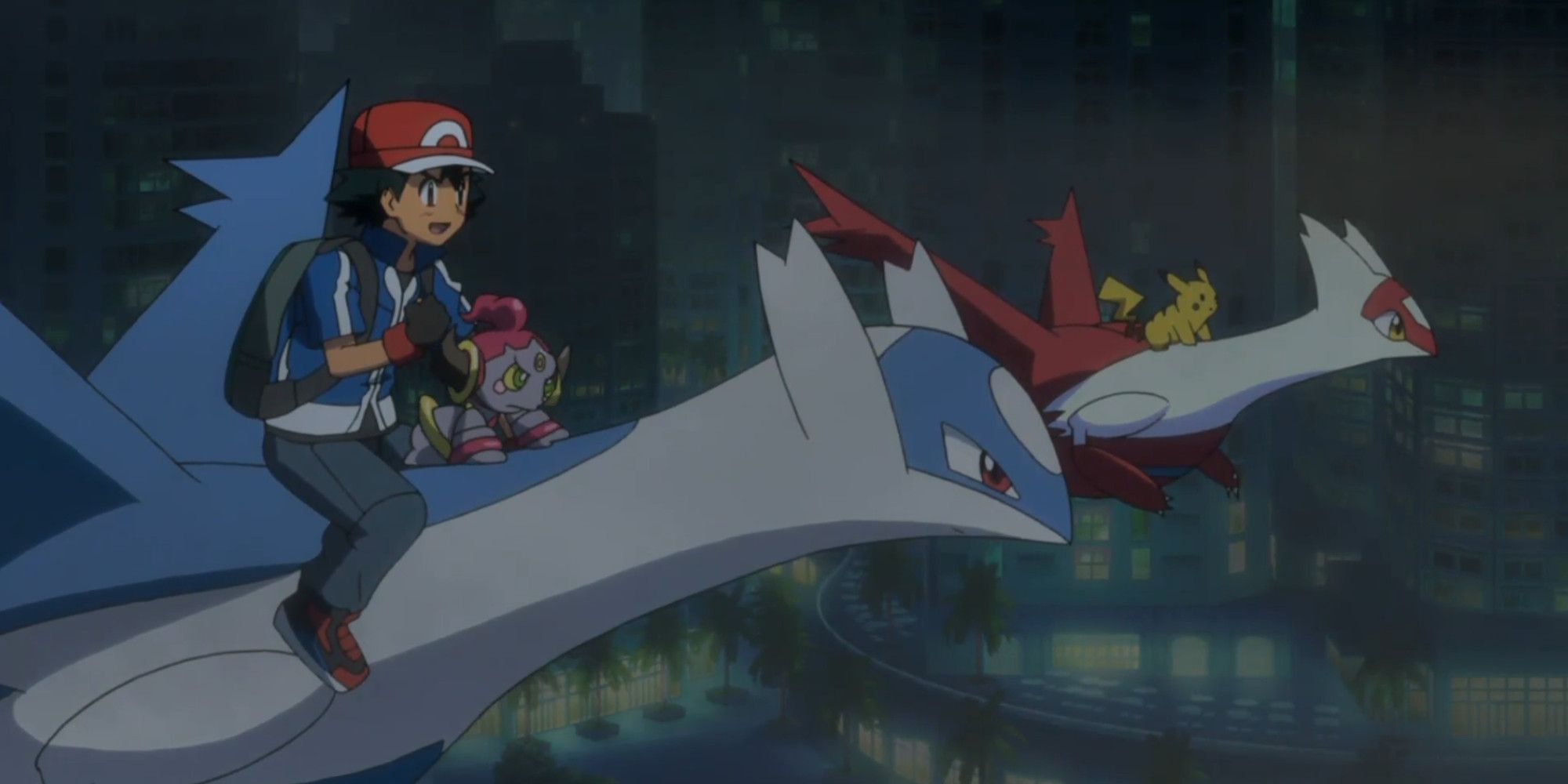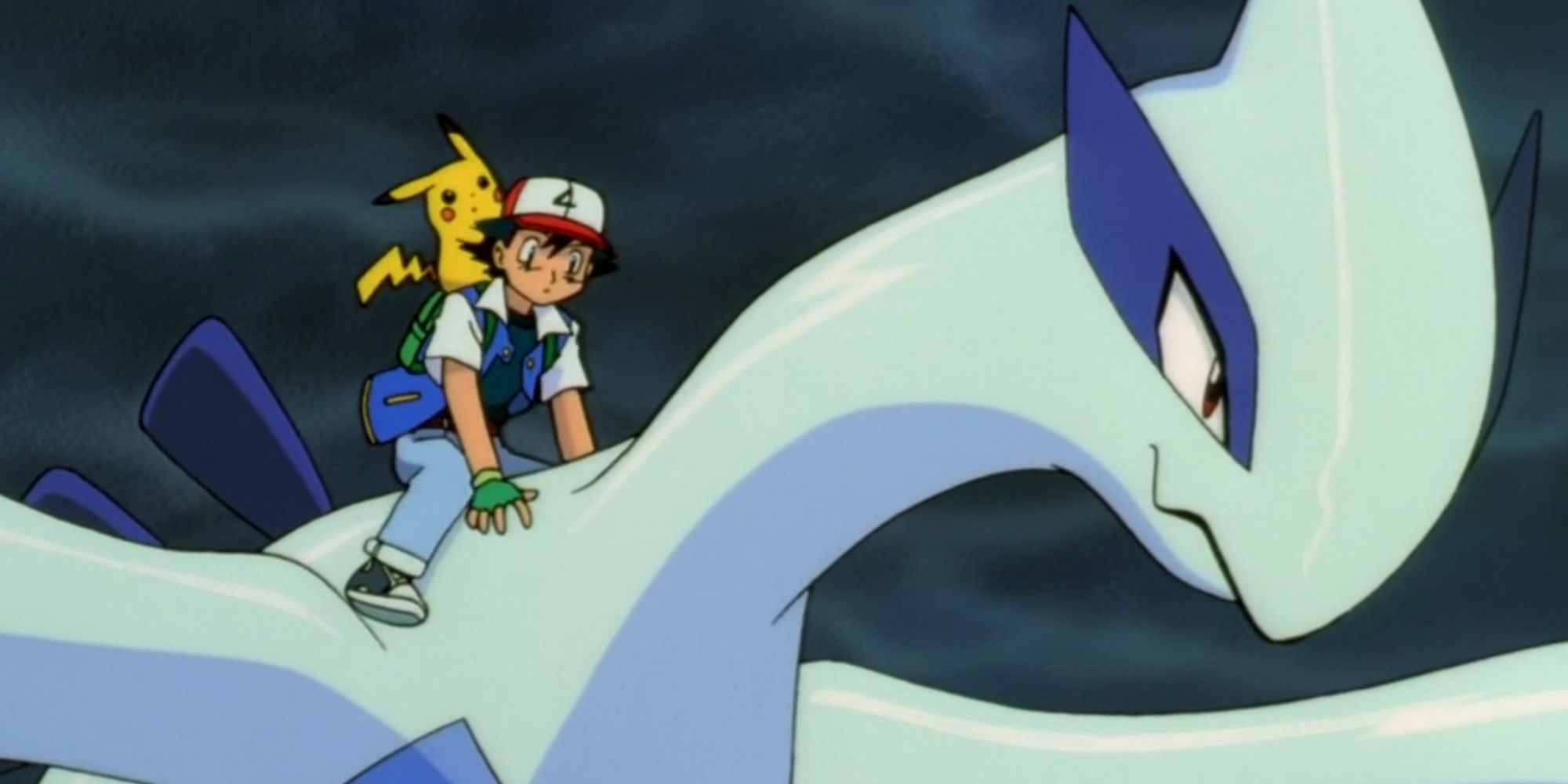What I Learned From Watching Every Pokemon Movie
I watched all 24 Pokemon movies back-to-back so you don’t have to.
You Are Reading :What I Learned From Watching Every Pokemon Movie
Category : Pokemon

How do you sum up the lessons learned from watching 22 years worth of Pokemon movies back to back? ‘You can overcome any hurdle with the power of friendships’ is the easy answer. ‘We’re all from the same planet and it’s our duty to protect it’ is another. In truth, the Pokemon movie series is what you would expect it to be: Ash and Pikachu saving the world, protecting Pokemon from evil men, and teaching people and Pokemon to love one another. It’s not a series that has evolved or matured much across its 23 entries (plus Detective Pikachu, which is not a Pokemon movie) and its stories aren’t some essential part of Pokemon canon that you’re otherwise missing out on – but that doesn’t mean it has nothing to offer.
The movies bring the world of Pokemon to life and give purpose and personality to so many Pokemon that we’ve only ever known as sprites and digital screeching sounds. They boldly explore the complicated relationship between people and Pokemon and are never afraid to ask hard questions, even when they can’t offer us an answer. They experiment with genre and borrow liberally from popular fiction to tell familiar stories in a unique way. On occasion, they manage to address complex issues with tact and nuance. For being an annual series of direct-to-DVD kids movies, there’s a lot to love about the Pokemon film series.
The Pokemon movies are divided into six eras that roughly align with the game series. The first five movies all take place during the Indigo League anime series and represent the first two Pokemon game generations. Most people have probably seen Mewtwo Strikes Back and Pokemon 2000, but the series really starts to find its footing in Pokemon 3.
Unlike the high-stakes, world-ending stories in the first two movies, Pokemon 3 features a much more intimate narrative about loss and grief. Throughout the series, it’s these personal stories that always have the most impact. There’s still plenty of cataclysm, but Pokemon 3 is a major turning point. After that, Pokemon 4Ever is the first example of Pokemon’s preoccupation with ecology and man’s impact on the natural world, though it’s arguable that Pokemon 2000 touched on these themes as well. Still, Pokemon 4Ever’s conservationist story is one that gets retold often throughout the series. Finally, Pokemon Heroes made Ash into a father, a fact that Pokemon fans really don’t like to hear.

The second era took place during the Advance Generation and replaced Brock and Misty with Ash’s Ruby and Sapphire companions May and Max. These four films represent the height of Pokemon’s interest in homage to other popular fiction. Jirachi: Wish Maker is the Pokemon version of E.T.: The Extra-Terrestrial, while Destiny Deoxys is an old-fashioned Kaiju movie, and one of the best in the series. Lucario and the Mystery of Mew made Lucario a star more than a year before Gen 4 was even released and pulls directly from Star Wars, and Pokemon Ranger and the Temple of the Sea is a good old-fashioned treasure hunt à la Indiana Jones. This era really stretched the conventions of Pokemon stories and continues to be some of the best adventures in the series.
The third era is by far my most favorite of any in the series. The Diamond & Pearl trilogy, or the Godkiller Trilogy as I’ve dubbed it, was a major swing for Pokemon. Before, every movie was a stand-alone story that didn’t impact or inform anything that came after it. This has always been a point of frustration in Pokemon. Every moment of character growth – like Ash becoming in Aura Guardian in Mystery of Mew or Team Rocket renouncing their life of crime in Pokemon 2000 – is immediately forgotten as soon as the credits roll. The Godkiller Trilogy serialized the Pokemon movies for the first time in order to tell one continuous story across three films, and it was the best Pokemon has ever been. Rise of Darkrai, Giratina & the Sky Warrior, and Arceus and the Jewel of Life explored the Pokemon universe’s origin myth while taking Ash and his friends through alternate dimensions and made them face terrifying existential threats. The era is capped off with Zoroark: Master of Illusions, a film about the inherent danger of mass media and the control of information. It’s a shockingly prescient movie for 2011 and my personal favorite Pokemon movie.

Things take an unfortunate downtown in the Black & White generation. The dual-release Black—Victini and Reshiram and White—Victini and Zekrom was a cool attempt at replicating the format of the games, but it had the most incomplete and disappointing story of any Pokemon film. Credit where credit’s due, it made an attempt to address the intergenerational trauma of the Jewish diaspora – which is a huge topic for Pokemon to take on – but it failed to do even the bare minimum and include the perspective of the people who were displaced.
The next two movies were similarly lackluster. Keldeo vs. The Sword of Justice has a confusing message about ignoring advice and doing whatever you want, and Genesect and the Legend Awakened, which features the return of Mewtwo, turned into a mess of a movie thanks to copyright issues about who owns the original Mewtwo. This generation tarnishes the broader Pokemon oeuvre and should be avoided.
Things don’t improve much at the beginning of the X & Y era, unfortunately. Diancie and the Cocoon of Destruction is in many ways a rehash of Kyurem vs. The Sword of Justice, and bastardizes the lore of Xerneas and Yveltal to, I suppose, show off how cool mega-evolutions are. Hoopa and the Clash of Ages bounces back in a major way though by serving up the ultimate Legendary Pokemon battle. It reintroduces practically every Legendary from the entire series for a world-ending fight while exploring themes of resentment, family, and humility. The final movie of this era, Volcanion and the Mechanical Marvel, is in many ways a retelling of the first Pokemon movie, Mewtwo Strikes Back. Nothing demonstrates how much of a narrative treadmill Pokemon has been on for the past 20 years like ending the original series with a carbon copy of the first movie. It’s obviously not my favorite movie, but in a way, it’s perfect.

Then comes the reboot, which consists of three movies and a remake of Mewtwo Strikes Back (a literal one this time). I Choose You is a stripped down retelling of the first season of the Pokemon anime. It glosses over a lot of the important developments like Pikachu learning to trust Ash, Ash’s mistreatment of Charmander, and Buttefree’s sad farewell. It’s not the best reintroduction to Ash’s story, but its still a good jumping on point. After that is The Power Of Us, the most well-reviewed Pokemon movie and the one I consider to be the best. It changes the Pokemon movie formula in a lot of ways simply by taking the focus away from Ash for once. It deftly interweaves five different storylines and comes together beautifully. Finally, Secrets of the Jungle is a throwback to the genre films of the Advance Era. It’s a retelling of Disney’s Tarzan and, ironically, the most mature film in the series. Its villain is the most ruthless and evil of any Pokemon bad guy and he commits an onscreen murder that’s shocking to see in a Pokemon movie. We don’t know if or when there will be another Pokemon movie, so if this is the end, at least it ended with a bang.
So where does that leave us? It’s easy to look at the Pokemon series and see it as a monolith – the same archetypal story getting told over and over again year after year. There’s a lot of tropes and conventions that have emerged over the years which have the unfortunate effect of homogenizing the series. There are 11 movies where men pursue power by exploiting Pokemon. Someone sacrifices themself to stop the villain 16 times – five of those someones are Ash. 11 movies are about Pokemon learning to trust people or vice versa. 14 movies feature a Pokemon that can psychically communicate with Ash, and he’s surprised by it every single time. There’s no denying that these movies tell the same stories and explore the same themes over and over again.
For the most part, Pokemon movies stick to a formula, but that doesn’t mean they’re shallow or lazy. In fact, most Pokemon movies are deeply concerned with the nature of our relationship with Pokemon and question our beliefs about them in subversive and complicated ways. The very first Pokemon movie asks us to consider the ethics of making Pokemon fight each other. Pokemon 2000’s villain is an obsessive collector that wants to capture the all-powerful Legendary Birds simply to add to his exotic collection. The way he engages with Pokemon mirrors the way we play Pokemon games. If it’s wrong for him to treat Pokemon like collectibles, is it wrong for us to do it too? We’re two movies in, and we’re already being asked to question the morality of collecting and battling Pokemon.

We’re asked to contemplate difficult questions like this throughout the entire series. Pokemon Ranger and the Temple of the Sea introduces Jackie Walker, a Pokemon Ranger who uses a Capture Styler to temporarily take control of Pokemon instead of capturing them because he doesn’t believe in catching Pokemon. You’re telling me there’s heroes out there that just want to protect Pokemon and let them live free, and Ash still wants to be a Pokemon Master? Everytime the film introduces a Pokemon that’s been hurt or betrayed by humans, we’re asked to reconsider what benefit mankind is even providing to Pokemon.
There’s always a happy ending, of course. Ash saves the day and proves that some people can be trusted, or the Pokemon suddenly changes its mind for one reason or another. Everything works out in the end, but still the questions linger. There’s no reason that the Pokemon movies need to bring up these issues. After all, if we aren’t catching, collecting, trading, and battling with our Pokemon, then what the hell are they for? But that little bit of introspection is what makes the Pokemon movies so important. It’s something we never really get in the Pokemon games, at least before Legends: Arceus, and it gives so much needed depth and realism to the world.
My big takeaway from the Pokemon movie series is that they’re so much more than they seem. They’re thoughtful and varied, complicated and rich with themes. Not all of them are good, but even the worst entries still try to ask big questions or explore big ideas. I’m glad I watched all of them because they gave me a better connection to so many Pokemon I never gave much thought to before. Darkrai and Zoroark are heroes to me, and I finally know the difference between Celebi, Jirachi, and Victini. The Diamond & Pearl trilogy has made Legends: Arceus more fun to play, and I feel like I finally get Lucario. I’m sad that it’s over, but I’m grateful for the way it’s enriched my understanding of Pokemon and my relationship with them. My only regret is not watching them as a kid. That, and never playing Pokemon Ranger, because apparently that’s the only way to be a good moral agent in the Pokemon world. If anybody’s got an old copy lying around, hit me up.
See more : PokemonWe
